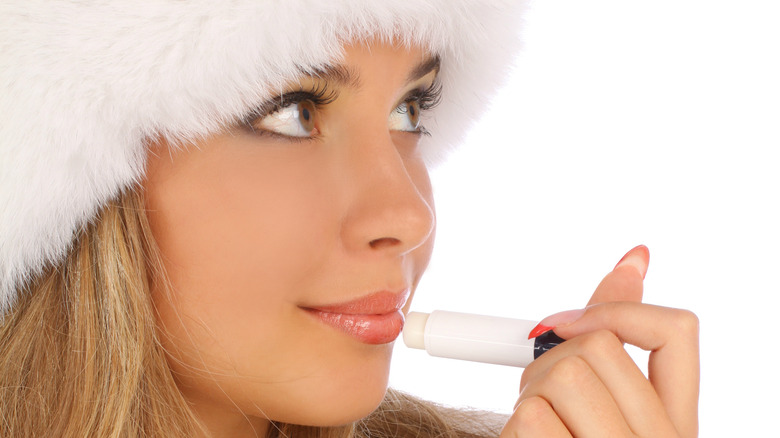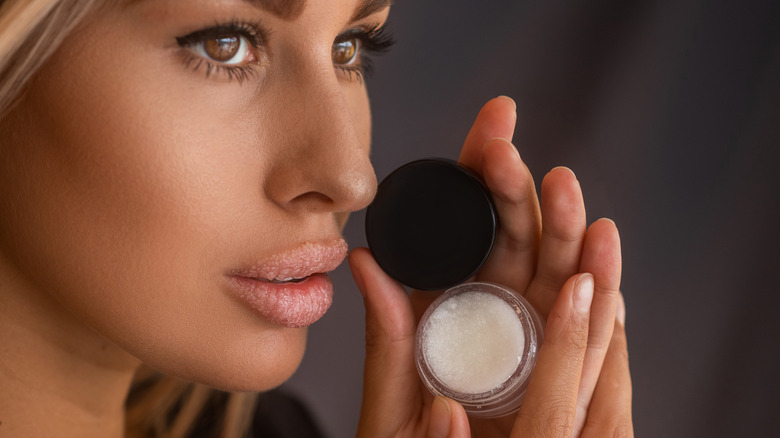How To Moisturize Your Lips Without Using ChapStick
Feel like you can't live without your ChapStick? Do you find yourself applying lip balm non-stop all day long? Want to break the habit? The good news is, you're probably not really addicted to your lip balm. Healthline assures us that ChapStick and other balms don't actually contain any addictive ingredients. Using lip balm frequently is a habit, not an addiction. And if your lips are so chapped they need constant attention, WebMD says certain balm ingredients — like camphor and menthol — can actually pull moisture from your pucker. Here's how to moisturize lips without using ChapStick.
Despite the rumors, ChapStick and other lip balms don't stop your mouth from making natural moisture. However, some lip balm ingredients could irritate sensitive lip skin and dry out your pout. Dermatologist Melissa Piliang, MD., tells Cleveland Clinic, "Lip balms containing ingredients like phenol, menthol, and salicylic acid actually make your lips drier. So you apply more, and it becomes a vicious cycle." Some scents and flavorings also contain chemicals that can irritate sensitive skin. If this may be a problem for you, toss your froofy-scented, fruity-flavored lip balm in favor of an unscented, plain-Jane version.
Keep lips moist without lip balm
To keep lips naturally healthy and moist, avoid licking, rubbing or picking at your pout, which can irritate the lips' thin, delicate skin (per Healthline). Avoid balms that cause tingling or burning sensations in the lips. It's not a sign the product is working — it's a sign of irritation. Same with toothpaste. Epiphany Dermatology says that whiteners, strong flavorings, and cinnamon dental products can irritate and dry out lips. Try trading your toothpaste for a milder version to ensure your lips stay moist year-round.
Polish your pout with a gentle exfoliant to remove dry, flaky skin and dead cells, then apply coconut oil, aloe vera, avocado butter, or petroleum jelly to prevent moisture from escaping (via Healthline). Make a DIY lip scrub by mixing equal amounts of salt or sugar with honey or oil, like coconut oil, rub it onto lips, and rinse with a damp washcloth. And drink plenty of water to stay hydrated and protect lip moisture. Northeast Dermatology Associates says that one of the first places dehydration shows is in the lips.
If you live in a dry climate, use a humidifier in your home to help keep lips moister. Humidifiers can also balance humidity levels in your home during the winter, when furnace heaters can zap moisture from the air. Put one in your bedroom for overnight hydration help and one in your office or home living space. If your lips are constantly dry or cracked, consider consulting a dermatologist.


